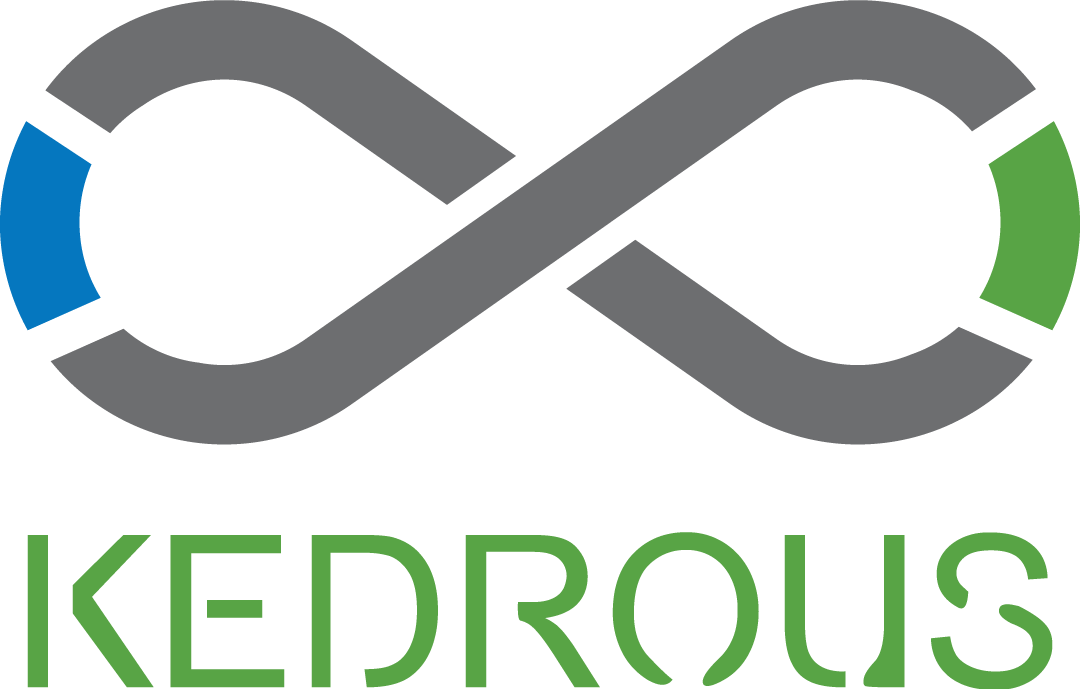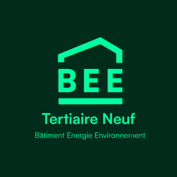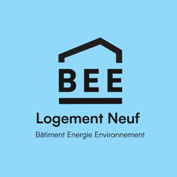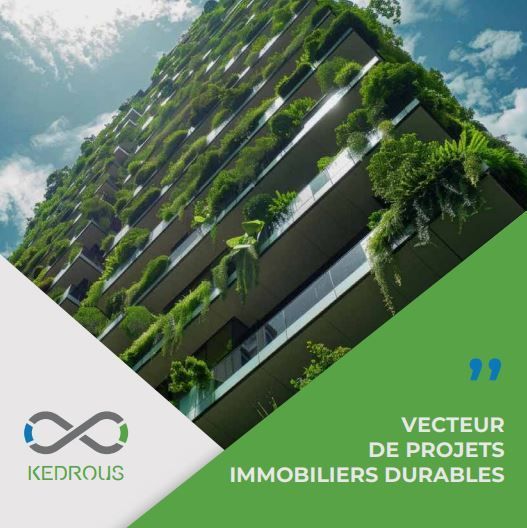Sustainable Development
Environmental certification
AMO NF Habitat / NF Habitat HQE
AMO BEE / BEE
AMO Promotelec
Sustainable Building AMO for the Paris region
I LOVE BREEAM NC
I LOVE BREEAM RFO
AMO BREEAM in Use
I LOVE HQE B and BD
AMO HQE Exploitation
I LOVE BEE
Reduce the impact of buildings on Greenhouse Gas (GHG) emissions and waste production: in fact, 70% of GHG emissions come from the construction phase and the construction sector is responsible for 35% of total waste production.
Contribute to climate change mitigation and adaptation: an eco-designed building contributes both to the public policy objectives of limiting global warming to 2°C by 2050, and to the objectives of adapting to the consequences of this warming by preserving the comfort of occupants.
Anticipate and limit the effects of rising energy access costs: For over 50 years, energy prices have been steadily rising, and the building sector accounts for 44% of energy consumption in France. This has concrete consequences for households, who must pay the bills and may find themselves in a situation of energy poverty.
Enabling access to quality housing: A building is a social, functional, and technical object. Beyond its energy and environmental performance, it must meet the needs, expectations, and constraints of its occupants. Therefore, from the very beginning, it must incorporate the objectives of preserving health, comfort, and, more generally, well-being.
Facilitating virtuous practices: the population is aware of the challenges ahead and new expectations are emerging (water savings, soft mobility, access to biodiversity, collaborative consumption, waste recovery, etc.). Facilitating eco-citizen behavior in the home therefore contributes to the objectives of sobriety.
To address these challenges, Prestaterre offers a multi-criteria standard that certifies a building's overall performance. This standard is designed to be readable, understandable, and pragmatic, making it accessible to all types of project owners.
The overall performance of the building is addressed here in 4 targets based on the main pillars of the circular economy.
Target 1
Eco-design of buildings and project management
Target 2
The building in its environment
Target 3
Energy, carbon and materials sobriety
Target 4
Uses and quality of life
The scope covered by the “BEE New Housing” standard concerns new buildings in the individual or collective residential sector in metropolitan France.
The field covered by the “BEE Tertiaire Neuf” standard concerns
For RT 2012
new buildings used for tertiary activities in metropolitan France as defined in the decree of December 28, 2012, with the exception of health and industrial establishments
For RE 2020
new buildings and parts of buildings used for offices and primary or secondary education in metropolitan France
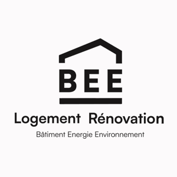
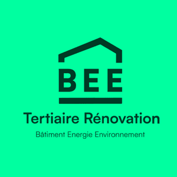
The “BEE Housing Renovation” and “BEE Tertiary Renovation” standards aim to respond to the main environmental and societal challenges of the 21st century:
Reducing the impact of buildings on greenhouse gas (GHG) emissions: The construction sector is responsible for 23% of greenhouse gas emissions in France. Of all economic sectors, it is the largest consumer of energy (43%), just ahead of the transport sector (44%). Energy renovation therefore plays a central role in the fight against climate change.
Anticipate and limit the effects of rising energy access costs: For over 50 years, energy prices have been steadily rising, and the building sector accounts for 44% of energy consumption in France. This has concrete consequences for households, who must pay the bills and may find themselves in a situation of energy poverty.
Enabling access to quality housing: A building is a social, functional, and technical object. Beyond its energy and environmental performance, it must meet the needs, expectations, and constraints of its occupants. Thus, it must integrate objectives of health preservation, comfort, and, more generally, well-being.
Facilitating virtuous practices: the population is aware of the challenges ahead and new expectations are emerging (soft mobility, access to biodiversity, collaborative consumption, waste recovery, etc.). Facilitating eco-citizen behavior in the home therefore contributes to the objectives of sobriety.
To address these challenges, Prestaterre offers a multi-criteria standard that certifies a building's overall performance. This standard is designed to be readable, understandable, and pragmatic, making it accessible to all types of project owners.
The overall performance of the building is addressed here in 4 targets based on the main pillars of the circular economy
Target 1
Eco-design of buildings and project management
Target 2
The building in its environment
Target 3
Energy, carbon and materials sobriety
Target 4
Uses and quality of life
The scope covered by the “BEE Housing Renovation” standard concerns existing buildings in the individual or collective residential sector in metropolitan France.
The scope covered by the “BEE Tertiaire rénovation” standard concerns buildings used for tertiary activities in mainland France as defined in the decree of December 3, 2007 (≤ 1,000 m2) or June 13, 2008 (> 1,000 m2) cited above, with the exception of health and industrial establishments.
NB: Operations delivered raw (without heating system in particular) are not certifiable.
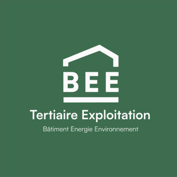
As with the other Building Energy Environment (BEE) standards, the “BEE Tertiary Operation” standard aims to respond to the main environmental and societal challenges of the 21st century:
Reduce the impact of buildings on greenhouse gas (GHG) emissions throughout their life cycle: for example, the operating phase of an office building accounts for 41% of the carbon weight of the building (vs. the construction phase), 56% of which is linked to energy consumption.
Contribute to the objectives of reducing final energy consumption: at least 40% in 2030, 50% in 2040 and 60% in 2050,
Limiting energy access costs: For over 50 years, energy prices have been steadily rising. As a result, the tertiary sector, which accounts for more than a third of the energy consumed in France, spent nearly €22.5 billion on its final energy consumption in 2019.
Meeting occupant expectations: the population is aware of the environmental challenges ahead and has diverse expectations regarding the occupation of a building: comfort, health, access to biodiversity, collaborative consumption, low-carbon mobility, etc.
To address these challenges, Prestaterre offers a multi-criteria standard that certifies the overall performance of a building's operation. This standard is designed to be readable, understandable, and pragmatic, making it accessible to all types of project owners.
The performance of building operations is covered in 10 themes based on the main pillars of the circular economy (the first theme being the prerequisites).
Theme 2: Management
Theme 3: Building environment
Theme 4: Works
Theme 5: Energy
Theme 6: Carbon
Theme 7: Water
Theme 8: Maintenance
Theme 9: Comfort
Theme 10: Health & Indoor Air Quality
Theme 11: Uses
The scope covered by this reference document concerns buildings used for tertiary activities in mainland France as defined in the decree of 3 May 2007 relating to the thermal characteristics and energy performance of existing buildings (≤ 1,000 m2) and the decree of 13 June 2008 relating to the energy performance of existing buildings with a surface area greater than 1,000 square metres, when they are the subject of major renovation work (> 1,000 m2), with the exception of industrial establishments.


